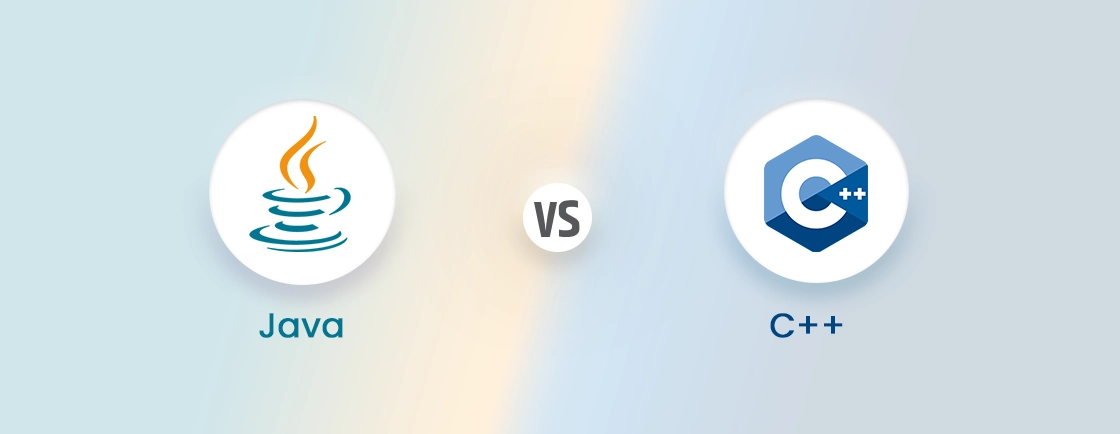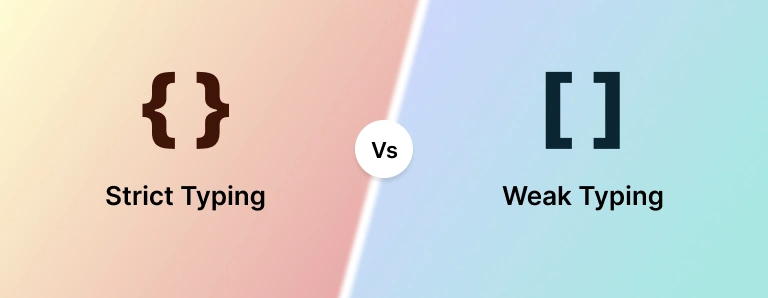Table of Contents
In the modern business world, having a well-designed website is essential for success as it helps you to establish an online presence and attract customers. To build a website of your choice, you have two major options: hire web development services or do it yourself.
DIY website creation has become increasingly popular thanks to user-friendly tools like ClickFunnels and WordPress. ClickFunnels is a famous sales funnel builder that has now become an all-in-one platform for website development. And WordPress is considered the best CMS as it offers a wide range of themes and plugins for website creation.
While both tools are widely used to build intuitive websites, you need to choose the right one that fits your needs and budget. And we will help you understand what each tool brings to the table and which you should choose. So, let’s dive in.
What is ClickFunnels?
ClickFunnels is a powerful tool that helps businesses create and manage their online sales processes. Here’s what it offers:
Easy-to-use design:
- Drag-and-drop editor for building funnels
- Ready-made templates for different sales strategies
Marketing tools:
- Email marketing features to connect with customers
- Customer Relationship Management (CRM) system
Website creation:
- Build complete websites
- Integrated blogging platform for content sharing
Testing and optimization:
- A/B testing to compare different versions of pages or emails
- Find out what works best for your audience
eCommerce capabilities:
- Sell physical products (including shipping and order management)
- Offer digital products, online courses, and subscriptions
Alternative to WordPress:
- Secure and managed platform
- All-in-one solution for online business needs
ClickFunnels simplifies the process of setting up an online business. It combines website building, marketing, and sales tools in one place. It’s a good choice for entrepreneurs who want a streamlined approach to creating and managing their online presence.
Whether you’re selling products, services, or information, ClickFunnels provides the tools to help you reach and convert your target audience effectively.
What is WordPress?
WordPress is a popular tool for creating websites. Here’s why it’s so loved:
Versatility:
- Build many types of websites, including blogs, online stores, forums, learning platforms, and membership sites
User-Friendly:
- Even if you’re not tech-savvy, you can create a great website
Customization:
- Make your site unique with themes (choose from thousands of designs) and plugins (add extra features to your site)
Huge Plugin Library:
- Nearly 60,000 plugins available
- Add features like contact forms, social media buttons, or SEO tools
Blogging Power:
- Built-in tools make blogging simple and effective
Flexibility:
- Use pre-made designs for quick setup or customize with your own code for a unique look
Constant Updates:
- WordPress regularly improves, keeping your site secure and up-to-date
Community Support:
- Get help from millions of WordPress users worldwide
Cost-Effective:
- Many features are free, with options to upgrade as you grow
Whether you’re a beginner starting a personal blog or a business creating a professional website, WordPress offers the tools you need. Its balance of simplicity and power makes it a top choice for website creation.
ClickFunnels vs WordPress: Comparison Table
| Features | ClickFunnels | WordPress |
|---|---|---|
| Ease of Use | Requires learning about online funnels, but fairly straightforward once familiar. | Significant time investment to learn, but highly customizable. |
| ROI | Quick to start with high potential for ROI if implemented correctly. | Building a profitable site takes time and effort. |
| Support | Provides instant messaging service and extensive online resources. | Support varies depending on theme, plugins, and hosting. |
| SEO | Some SEO capabilities, like editing meta data. | Full SEO capabilities available through various plugins. |
| Time | ClickFunnels can be set within a week | It takes some weeks to develop website functionalities and make it live |
| Flexibility | It offers various templates and customization options | With WordPress, the possibilities are endless. But you need to keep your website style and branding according to your chosen theme |
Differences Between ClickFunnels and WordPress
When you have to choose a suitable platform for website building, you need to consider a lot of things. It can include functionalities, costs, flexibility, integration options, etc. So, let’s discuss all these points in detail by comparing ClickFunnels and WordPress:
Ease of Use
ClickFunnels is best for making online sales pages. It’s suitable for users who aren’t tech experts. You can easily create sales funnels using ready-made designs and a simple drag-and-drop tool. You can set up sales pages quickly without worrying about complicated technical details.
WordPress, on the other hand, is more like a big box of Lego blocks for building websites. It gives you more control but can be trickier to use. There’s lots of help available online to learn how to use it. With WordPress, you can manage every part of your website, from content to layout. But this freedom means you’ll need to handle website hosting and WordPress updates yourself.
Verdict: ClickFunnels is best for quick and easy sales pages, while WordPress is better if you want full control over your entire website and don’t mind a bit of a learning curve.
eCommerce Functionalities
ClickFunnels comes ready to go with in-built shopping cart features. It also integrates well with various payment gateways easily. What’s really interesting about ClickFunnels is its sales funnel-building capabilities that guide customers from initial interest to the final purchase. It’s great at creating a smooth path for shoppers.
WordPress needs a WooCommerce setup to run eCommerce functionality. This might seem like more work, but it gives you tons of options to make your online store just how you want it. WordPress supports everything from retail sales to large-scale options, giving you a large business scope.
Verdict: Choose ClickFunnels for simplicity and speed, or WordPress for flexibility and comprehensive eCommerce capabilities.
Customization Options
ClickFunnels lets you personalize your sales funnels by changing colors, fonts, and other elements to fit your brand. It’s user-friendly and customizable but mainly focused on creating effective sales pages.
On the other side, WordPress is an open source platform with endless possibilities. With thousands of WordPress plugins and themes, you can build almost any kind of website you can imagine. With WordPress, you have more freedom to create a unique site that perfectly matches your vision. However, this flexibility means it might take more time and effort to set up.
Verdict: If you prioritize simplicity and efficiency in creating focused sales funnels, ClickFunnels is the clear choice. It’s designed specifically for sales pages and offers easy customization options. However, if you value flexibility, long-term scalability, and the ability to create a highly customized website beyond just sales funnels, WordPress is the better option.
Marketing Tools
ClickFunnels is great for online marketing, especially when it comes to building sales funnels and optimizing conversion rates. It offers various tools for A/B testing, email integrations, and analytics to track how well your funnels are working.
WordPress is good for making your website SEO-friendly. It has add-ons like Yoast SEO that help you improve search engine visibility easily. It is very flexible, so you can trust it for every marketing strategy beyond just sales funnels. You can create blogs, online stores, and much more. You just need to follow the best WordPress SEO practices and keep your website updated.
Verdict: If your primary focus is on creating optimized sales funnels with robust A/B testing, email integration, and detailed analytics, ClickFunnels is the better choice. However, if you need a versatile platform for broader digital marketing strategies, including SEO, blogging, and eCommerce, WordPress is more suitable.
Security Practices
ClickFunnels deals with important information like customer payments and personal details. As it is a SaaS (Software as a Service) platform, it needs extra protection. To keep your data safe, use a strong password that’s hard to guess. Also, turn on two-factor authentication, which adds an extra step when logging in.
WordPress has many free and paid add-ons plugins to help keep your site secure. These can detect suspicious activities, block harmful visitors, and warn you about possible dangers right away. To make your WordPress site even safer:
- Keep everything up to date (WordPress itself, themes, and plugins)
- Use strong passwords
- Limit how many times someone can try to log in
You can manage WordPress security yourself by following the best practices or hiring dedicated WordPress security services as well.
Verdict: If your site contains limited sensitive data and can be handled with basic security standards, ClickFunnels is a good fit. If you need robust security to handle large sets of data, WordPress is perfect.
Integrations
ClickFunnels integrates well with third-party services to create a user-centric marketing environment.
Here are some integrations you can consider:
- Kajabi: Lets you link your products to members-only areas
- PayPal and Stripe: Make the payment process easier
- Shopify: Improves eCommerce capabilities
WordPress offers a wide range of integration options to enhance your website’s functionalities:
- WooCommerce: Turns your site into an online store where you can manage products and payments
- LoginPress: Lets you customize each element of the Login page
- Simple Social Media Share Buttons: Make it easy to share your content on social media platforms such as Facebook, Twitter, and LinkedIn
- Analytify: Helps you track website performance, user behavior, conversion rates, and much more
- Smush: Optimizes the uploaded images automatically
Verdict: ClickFunnels is ideal if lead capturing and sales conversions are your only goals. And WordPress is the correct choice when you want to build a website with diverse functionalities.
ClickFunnels vs WordPress: Pricing Comparison
Pricing is a big deal when it comes to developing a website. You need to understand the pricing structure of both platforms to make the right choice.
ClickFunnels Cost
You get two pricing plans in ClickFunnels to choose on the basis of your business needs:
- Startup Plan: Get started with ClickFunnels for $81/month. This plan includes essential features with three brand workspaces and 3 team members. You also get unlimited funnels, courses, members, contacts, pages, and domains.
- Pro Plan: The Pro plan costs $297/month. This plan offers expanded capabilities with 10 brand workspaces and 10 team members. Enjoy unlimited funnels, courses, members, contacts, pages, and domains to scale your business efficiently.
WordPress Cost
WordPress offers a range of pricing options to suit various needs:
- The WordPress Personal Plan is priced at just $4 per month when billed annually. It includes a custom domain, live chat support, and email access.
- Moving up, the Premium plan is the most popular choice at $8 per month billed annually, offering enhanced features.
- The Business plan, priced at $25 per month billed annually, is ideal for small businesses. It includes custom plugins and themes, 24/7 live chat support, and 200 GB storage.
- For those running online stores, WordPress offers the eCommerce plan at $45 per month billed annually. This plan is designed to support and scale your online business effectively.
Each plan is crafted to meet specific needs, from personal blogs to robust eCommerce ventures, ensuring flexibility and scalability as your website grows.
Apart from this, you can also use self-hosted WordPress which is an open source version of the platform. It gives you complete control to customize your website the way you want it.
Talking about the costs, you might pay around $20/yr on a domain, $5/mo to $75/mo on web hosting, and additional costs for themes and plugins.
Making the Right Choice
When comparing WordPress and ClickFunnels, cost is a key factor. WordPress offers a more budget-friendly option. ClickFunnels is costlier but offers many tools that some businesses find worth the investment.
Technical skill is another important consideration. ClickFunnels is designed for ease of use, requiring little technical knowledge. WordPress, on the other hand, offers more room for customization but demands a higher level of tech expertise.
Both platforms have their strengths. ClickFunnels is an all-in-one solution for creating sales funnels. WordPress is a versatile website builder with extensive customization options.
Your choice between the two should depend on your specific business needs. Think about what you’re trying to achieve, how much you’re willing to spend, and your technical abilities. Are you looking for a simple, ready-to-use solution for sales funnels? ClickFunnels might be your best bet. Need a flexible platform for a more complex website? WordPress could be the way to go.
Conclusion
Both ClickFunnels and WordPress offer powerful tools for building and managing your online presence, but they cater to different needs. ClickFunnels is ideal for those focused on sales funnels and lead generation, offering a streamlined, all-in-one solution with a user-friendly interface and robust marketing features. On the other hand, WordPress excels in flexibility and customization, making it a top choice for content-heavy websites and those requiring extensive customization through plugins and themes.
Your choice between ClickFunnels and WordPress ultimately depends on your specific business goals and technical expertise. If you need a quick, effective way to drive sales and don’t want to deal with technical complexities, ClickFunnels is the right choice. However, if you desire complete control over your website’s design and functionality, and you’re prepared to invest some time in learning, WordPress is unparalleled. Whichever platform you choose, both can help you build a successful online business.
For a marketing-focused blog or website, both WordPress and ClickFunnels are excellent platforms. But to create the website with the most suitable one, you can get help from our web developers for hire. We’ll analyze your requirements and go about the development accordingly.
FAQs on ClickFunnels vs WordPress
I want my website to grow and change over time. Which platform is more flexible?
WordPress is more flexible for a website that needs to grow and change over time. It offers a vast array of themes and plugins, allowing you to customize and expand your site as needed. With WordPress, you have control over your site’s design, functionality, and content management. This flexibility makes it ideal for businesses looking to scale, adapt to new trends, and add features without limitations.
Can I use ClickFunnels and WordPress together?
Yes, you can use ClickFunnels and WordPress together. ClickFunnels offers a WordPress plugin that integrates your ClickFunnels sales funnels into your WordPress site. This allows you to leverage the design and marketing capabilities of ClickFunnels while maintaining the flexibility and functionality of WordPress for your main website. It’s a powerful combination for building a robust online presence and optimizing your sales processes.
Which platform offers better analytics and tracking?
ClickFunnels offers comprehensive analytics and tracking tools specifically designed for monitoring sales funnels and marketing campaigns. It provides detailed insights into conversion rates, click-through rates, and customer behavior within your funnels. However, WordPress, when integrated with plugins like Google Analytics, can offer broader and more customizable analytics for overall website performance, user behavior, and traffic sources. Your choice depends on whether you need in-depth sales funnel analytics or broader website tracking capabilities.
Compare the best tech side by side.
Our in-depth comparisons help you see features, pros & cons, and choose the right tools confidently.





